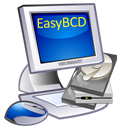Unlocking Your PC's Potential: Top VMLite VBoot Alternatives for Seamless Virtualization
VMLite VBoot offers a unique solution for booting physical computers directly from virtual disk files (VHD, VMDK, VDI), simplifying multi-boot setups and providing excellent recovery options. It's a powerful tool for quickly deploying different operating systems and isolating system changes. However, as with any specialized software, users may seek VMLite VBoot alternative solutions for various reasons, including broader platform support, specific feature sets, or open-source preferences. This article explores some of the best alternatives to VMLite VBoot, helping you find the perfect fit for your virtualization and multi-boot needs.
Top VMLite VBoot Alternatives
If you're looking to explore other robust options beyond VMLite VBoot for managing your virtualized environments and boot configurations, this list provides excellent alternatives with diverse features and platforms.

KVM (Kernel-based Virtual Machine)
KVM is a powerful, open-source virtualization solution built directly into the Linux kernel. It offers full virtualization for x86 hardware with virtualization extensions. As a Linux-based, open-source platform, KVM provides a highly flexible and extensible alternative to VMLite VBoot for users seeking deep integration with Linux environments and powerful virtualization capabilities.

EasyBCD
EasyBCD is a popular, free personal utility for Windows that simplifies the process of tweaking your Windows boot configuration and setting up multi-boot systems. While not a virtualization tool like VMLite VBoot, it excels at managing MBR (Master Boot Record) and enabling various operating systems to coexist on a single machine, making it a strong alternative for boot management.

Portable Virtualbox
Portable VirtualBox is a free, open-source tool for Windows that allows you to run any operating system from a USB stick without a separate installation. It offers a portable virtualization solution, similar to VMLite VBoot's ability to boot from virtual disk files, but with the added convenience of being entirely portable and leveraging the robust features of VirtualBox.

rEFInd
rEFInd is an open-source boot manager for EFI (Extensible Firmware Interface) and UEFI-based computers, supporting Mac, Windows, and Linux. While not a direct virtualization alternative to VMLite VBoot, rEFInd provides a powerful and flexible way to manage multiple operating systems on modern hardware, offering a clean and intuitive boot selection interface.

Grub Customizer
Grub Customizer is a free, open-source graphical interface for Linux users to configure GRUB2/BURG settings and menu entries. Although it doesn't offer direct virtualization like VMLite VBoot, it provides a user-friendly way to manage complex multi-boot scenarios on Linux systems, offering configurability for those who need fine-grained control over their bootloader.

Grub2Win
Grub2Win is a free, open-source solution for safely dual-booting Windows and Linux without modifying the Windows MBR. It supports a wide range of Windows versions (XP, 2000, Vista, 7, 8) and Linux, providing a robust boot manager alternative to VMLite VBoot for users who need to easily switch between natively installed operating systems.

bochs
Bochs is a highly portable, open-source IA-32 (x86) PC emulator written in C++, running on multiple platforms including Windows, Linux, AmigaOS, and MorphOS. While a full system emulator rather than a direct VHD boot utility like VMLite VBoot, Bochs allows for robust emulation of various PC hardware, offering a powerful environment for running older operating systems or testing without impacting the host system.

OpenVZ
OpenVZ is a container-based virtualization solution for Linux, creating multiple secure, isolated Linux containers (VEs or VPSs) on a single physical server. As an open-source, Linux-based containerization technology, OpenVZ offers a highly efficient and lightweight alternative to full virtualization solutions like VMLite VBoot for those specifically needing to run multiple Linux environments.

QEMU Manager
QEMU Manager is a free, user-friendly management tool for the open-source QEMU emulator, primarily for Windows. While QEMU itself is a powerful virtualization platform, QEMU Manager simplifies its use, providing a graphical interface for creating and managing virtual machines. It serves as a strong virtualization alternative to VMLite VBoot, especially for Windows users leveraging QEMU's capabilities.

UTM
UTM is a free, open-source full-featured virtual machine host for iOS, enabling users to run Windows, Android, and more on iPhones and iPads. With support for over 30 processors, UTM brings robust virtualization to mobile devices, offering a unique and versatile VMLite VBoot alternative for those seeking to extend their virtual environments to Apple's mobile ecosystem.
Each of these VMLite VBoot alternative solutions offers distinct advantages, whether you prioritize native boot management, full-fledged virtualization, or portable operating system deployment. Consider your specific operating system needs, technical expertise, and desired features to select the best alternative that empowers your computing experience.